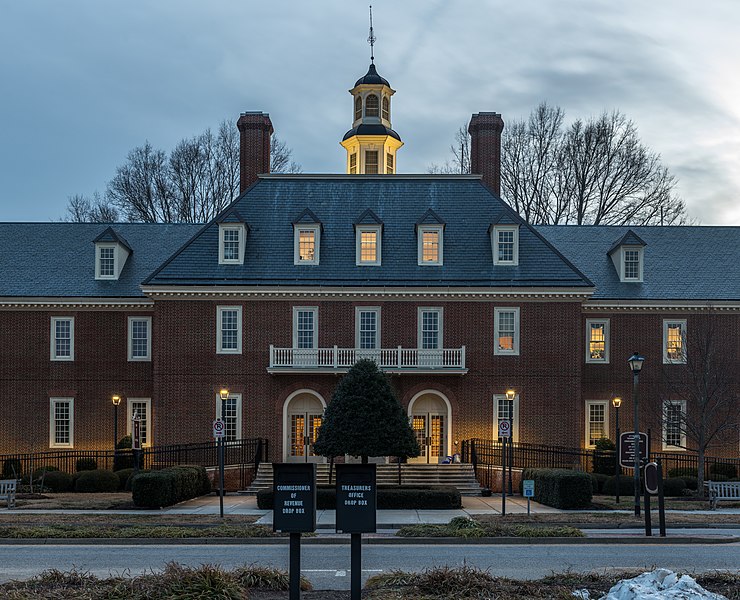Genesis 15:1-6 and Luke 12:32-40
 |
| Uploaded from http://flickr.com/photo/83588790@N00/229844793 using Flickr upload bot |
Don’t ask why, but I love a good healthy debate, also known more frequently as conflict these days.
During my time studying in seminary, I had a theology professor who wanted to spark a little debate one day, so he threw some theological gasoline onto our little class of matchsticks.
He asked us if God ever suffers, to which we all confessed our belief that God did in fact suffer.
He then asked us if God changes, a characteristic to which everyone adamantly denied as a possibility.
After telling us you couldn’t have your cake and eat it too, the whole room erupted into an existential crisis.
The simple fact is, we all want to know the God that shares in our own suffering,
Yet, we simultaneously long for a God who provides the consistency of a reliable and stable presence.
In such a fast paced world that is always changing, we need to know that there is at least one sanctuary from the storms of change,
and for many of the faithful, that is our trust and belief in the God of Abraham, the same God that we confess has died and is risen from the tomb.
But what do we do about this conundrum?
The God who has suffered upon the cross must also be a god that is susceptible to change!?
Yet, a god who does not change is also a god who cannot truly know the fullest extent of human suffering?
If this is true, what are we to do about the uncertainty of our own lives and our own world?
Turn on cable news for 15 minutes and tell me that isn’t a terrifying prospect!
It is any wonder that uncertainty, skepticism, and mistrust are on the rise.
Conspiracy theories and propaganda are injected into our politics and society, dividing us and sewing mistrust into every institution we once relied upon!
Both our first lesson and Gospel for today speak to this challenge.
Abram, the father of monotheism, leaves a stable homeland and the gods of his people based solely upon a command and a promise from God.
God promises Abram he will be the father of a people and a land.
And in spite of the fact that many have spoken of the faith of Abraham, this man may not be as faithful as we make him out to be.
Sarah has always gotten a bad rap for laughing at this promise, because as Abram waits for those children, he too will find himself falling on his face laughing, just five chapters later.
I can’t blame him.
Abram picks up everything, moves into a strange land, abandons an old life and people, all on a very unlikely promise from God.
If that isn’t anxious or uncertain to you, you’ve probably never had to relocate or move.
After driving across this country a few months ago, to begin my ministry here, across a seemingly endless desert, I find myself a bit more anxious as I read of Abram’s impending journey.
It’s a journey into uncertainty and instability, all for a promise that he and Sarai will find themselves waiting and waiting and waiting for.
It is really and truly a story that any of us should be capable of relating to ourselves.
Political, social, and global turmoil seems to be waiting just around every corner in our world today.
Family conflict, legal or financial challenges,
even at Churchwide Assembly this past week, the biggest conversation behind the scenes was the the underlying tension among that gathered church community.
Daily we are reminded in the midst of shootings and polarized misleading social and political commentary,
as we are being further driven out into a desert of uncertainty, all because we are seeking promises offered to us by false gods.
The gods of certainty and security, the gods that promise we can have everything back to the way that it used to be.
I cannot read this story without hearing that same anxiety in Abram’s voice as he looks back to Ur of the Chaldeans, longing for the old way, the certainty and security of those old god’s.
The plain and simple truth is that if we honestly read and reflect on these stories that shape our understanding of God, we look to a God that promises us anything but certainty and security.
We don’t really subscribe to a god that “won’t give us more than we can handle” or a god who throws a monkey wrench into our lives for the mere sake of fine turning things so that it’s all “just according to god’s plan”
These are just desperate phrases we use to ensure a false sense of security, because following THE God we find in the story of Abram, certainly doesn’t paint that picture, not if we are really to be honest with ourselves.
And sisters and brothers, I shudder to imagine what Jesus would have said on the cross if the disciples would have looked up to him and assured our Lord, that God “doesn’t give us more than we can handle!”
The gospel for today paints another picture of anxiety, because it too illustrates the absence of certainty and security.
It is a warning to us all, that we may find ourselves, much like Abram anxiously waiting with only one near certainty haunting us, the belief that God has left us all alone.
Waiting alone as the uncertainty and fear encroaches upon us, like the darkness of the night that encroaches on those lamps we’ve lit, to combat the impending shadows of our despair and unbelief.
Those lamps that we’ve lit which are fueled by this meal that will be set,
our baptisms into God’s Church,
the absolution we are assured following the confession of our sin,
the gift of God’s Word, and the consolation of our church community charged with the care of one another.
But, we cannot deny that the darkness does not still loom just beyond the light that our lamps cast.
It doesn’t mean we do not still fear,
as our lamps flicker against the night,
fear that the oil will not last until the dawn
or, it just isn’t as efficient or sufficient as those new solar powered LED lamps.
It truly does not feel like the old days, my friends.
I would be lying to you if I denied that I too find myself crying out for the security of those “good old days.”
But the good old days are only good when we look back, and we realize that we were not as alone as we thought we were, in the darkness of those days.
We look back and recognize that amidst the fear and anxiety, that light remained,
even in the darkest of days when our faith wavered in the shadows.
It isn’t a new fear, it is the same fear I was reminded of as I flew out to Milwaukee last week, discerning these texts, our world, and all the events that have been unfolding in our nation.
It is a fear that I heard in the lyrics of an old album I hadn’t listened to in years.
As I began to write this sermon, I listened to Green Day’s album, American Idiot, as Billy Joe Armstrong sang out in their ballad “Are we the waiting,” the lyric “the Jesus of Suburbia is a lie!”
It reminded me of the very same statement from another philosophical great, Friederich Nietzche, who proclaimed to the world “Gott ist tott!”
God is dead…
Neither of these statements are a denial of God’s existence, in spite of how they have been abused over the years.
They are statements about what happens to our world and us, when we succumb to the certainty that God has left us,
helpless and vulnerable before the darkness of this world that seems to be on the verge of overcoming the light.
The truth is; God does change, not only in scripture, but in our lives, and in our world.
And whenever anything changes, we are left to feel abandoned, uncertain, and waiting in fear, hovering around any light we can find.
Let there be no doubt, there are a lot of superficial lights to which we can cling to out there.
Lights of this world, like the talking heads of our own political echo chambers,
Lights or this world, like the quick and easy solutions that only create deeper problems, because we were too impatient to consider how difficult those problems really were in the first place.
Some lights that can come on, with just the flip of a switch!
Switches like partisanship, hatred, anger, fear, blame, and bigotry.
Switches that are flipped without even a passing thought for the humanity of our neighbor.
But who can blame us as we cower in the darkness of this world?
After all, a God that changes, a God beyond our own human grasp,
How reliable is THAT?!
 |
| Photo by DXL on Unsplash |
God does change, because God suffers with us,
on the cross and in our own lives.
God changes because our world changes, so God seeks new ways for us to live in this world as Church together.
But in the midst of all this change, there is one thing that is, was, and always shall be;
The Love of God.
The darkness of sin can separate us from God, and each other, but there is no darkness that can separate us from the light of God’s love.
And even when we are foolish enough to invite in the darkness,
succumbing to our own insatiable capacity for sin,
or we are led into the darkness by those false lights of this world:
Those bulbs that burnout, those batteries that die, those fuses that blow out in the middle of the night,
Our lamps will overflow with the oil of God’s grace and love.
Through the Word, the meal, the grace of God’s forgiveness, the water of our baptisms, and the love God shares through us in our communities.
We can be those lamps in this dark world!
Or, we can succumb to our own desperate need to follow any light with a bulb and battery on the verge of burning out that comes our way,
Just hovering around the false lights of this world, as we are lured deeper into the darkness.
And this is why we should never deny the darkness that exists, because even if we are lured out into the darkness, the darker it gets, the brighter THAT LAMP + will always shine, calling us home.
Especially, when all the other lights go dim.
Amen.
 |
| Christ on the Cross, Eugène Delacroix 1846 PD |
The Gay Science: With a Prelude in Rhymes and an Appendix of Songs by Friedrich Nietzsche; translated, with commentary, by Walter Kaufmann (Vintage Books, March 1974)
Green Day. American Idiot. Studio 880, Oakland, CA 2004





